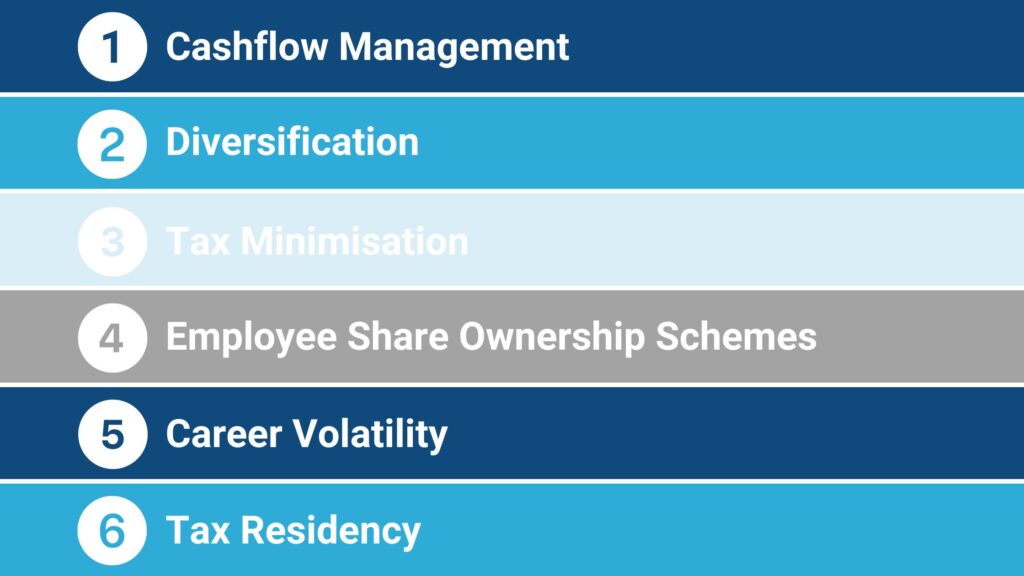In a competitive industry such as information technology (IT), being unique matters. However, the reality is that it’s not often the business itself that is unique — it’s what is embodied by that business: the team, its approach, the collective insights, as well as the intellectual property and experience that ultimately creates the unique proposition of a business.
The unique financial situation for technology professionals
Business owners and operators in the IT industry understand and appreciate this, which is why the ability to attract and retain top tier talent is of utmost priority to them. This drive for talent, combined with the competitive nature of the industry, creates a unique financial situation for technology (tech) professionals.
Tech professionals: surplus funds and a shortage of a time
Quite often, tech professionals are high-income earners with a surplus of funds, but a dearth of time to manage their money due to their demanding careers.
Whilst being busy is not the sole domain of tech professionals, when you factor in financial elements that are unique to their situation such as earnings fluctuations, employee share ownership schemes, employment volatility and more, it becomes clear that the financial fallout of not proactively managing money can be quite detrimental.
IT professionals can accelerate their wealth creation
We have found most IT professionals have the ability to accelerate their wealth by being smarter with their money. In many cases this could be an extra $10-30,000 per year..so what do you need to do to ensure your wealth is keeping pace with your career?
Given there is the potential to improve your financial situation by $10-30,000 year, it’s essential to be aware of the top six issues that you need to consider when it comes to managing your money:
Top six issues when managing your money

In this special five-part series, you will discover how to better navigate the financial landscape that is unique to your career in information technology and uncover some wealth management strategies that will help you do more with your money.
1. Cashflow management
If you are a full-time technology professional, probability is you are earning more than the average employee. In fact, the average IT salary in Australia in 2023 is $103,624 per year or $53.14 per hour. Entry-level positions start at $81,489 per year, while more experienced employees earn up to an average of $148,613 per year.
Here at Profile Financial Services, we advise tech professionals at all stages of their careers, including a large percentage with salaries that surpass $250,000 per year and include short and long term incentives such as the allocation of shares or option rights.
2. Staff incentive programs
In addition, many organisations attract and retain industry talent though incentive programs such as employee share ownership schemes, which we will discuss in further detail in part 3 of this special series.
However, whilst remuneration in the IT industry is quite competitive, achieving a healthy balance between saving and spending often proves more elusive for tech professionals than other sectors due to the varied remuneration structures that exist.
These structures, which may include equity-based compensation, performance-based bonuses, tenure-driven equity offerings, or a combination of these, creates fluctuations in earnings as income can vary year to year based on the market performance of the company.
The importance of financial advice
This variation can make it more difficult to plan your financial future when your financial present is in constant motion. However, at Profile Financial Services we can work with you to navigate the ebbs and flows that are unique and build a custom framework that suits your current challenges and opportunities, which is the key to doing more with your money now and over the long-term.
Stay tuned for more!
Stay tuned for part two when we dive into diversification and divulge why it should be an essential part of every investment portfolio!
Follow our LinkedIn Page to keep up with the latest industry news, finance tips and more.






